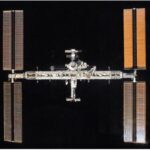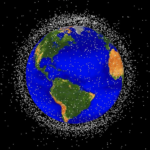Browse Resources by Year
Since 2012, there has been a significant uptick in the number of developing nations entering the space community annually. From 1957 until 2011, the average number of countries entering orbital space per year was two. Between 2012 and 2019, the average number of countries entering space annually increased to four.
Read MoreThis year marks the 20th anniversary of human habitation on the International Space Station (ISS). That sustained success means NASA and the ISS U.S. National Laboratory, which share American resources on the orbiting facility, have transitioned from merely supporting life in space to . . .
Read MoreAs Space Debris Piles Up and Satellite Deployments Grow, Calls for Space Tracking Mount
Relative to the vastness of space, the near collision was frighteningly close. On Jan. 29, 2020, a decommissioned U.S. space telescope and a U.S. experimental payload were hurtling toward each other over Pittsburgh.
Read More2019 Orbital Space Launch Activity Launch vehicle activities, despite the colloquialisms about rocket science, are routine enough that, on average, two launches occurred per week last year. Seven countries attempted…
Read MoreOur world demands new structures to organize people and utilize new technology. One of those is a public-private partnership. . .
Read MoreThe late Dr. Clarke, popularly known for authoring the cinematic space classic, “2001: A Space Odyssey,” was known for his technical prowess (he conceived the geostationary satellite) but also for his compelling optimistic vision for space development. . .
Read MoreIntroduction | The S-Network Space Index tracks a global portfolio of publicly traded companies that are active in space-related businesses such as satellite-based telecommunications; transmission of television and radio content…
Read MoreWe owe much to the technologies developed in the pursuit of space exploration. From handheld vacuums to GPS technology and camera phones, inventions originally engineered to use in space are increasingly being adapted to serve practical purposes in our daily lives. One of the more unlikely adaptations of space technology may be that of . . .
Read MoreIn 2018, significant policy developments helped shape the future space economy. At the international level, the United Nations Committee on the Peaceful Uses of Outer Space (COPUOS) released its . . .
Read More








